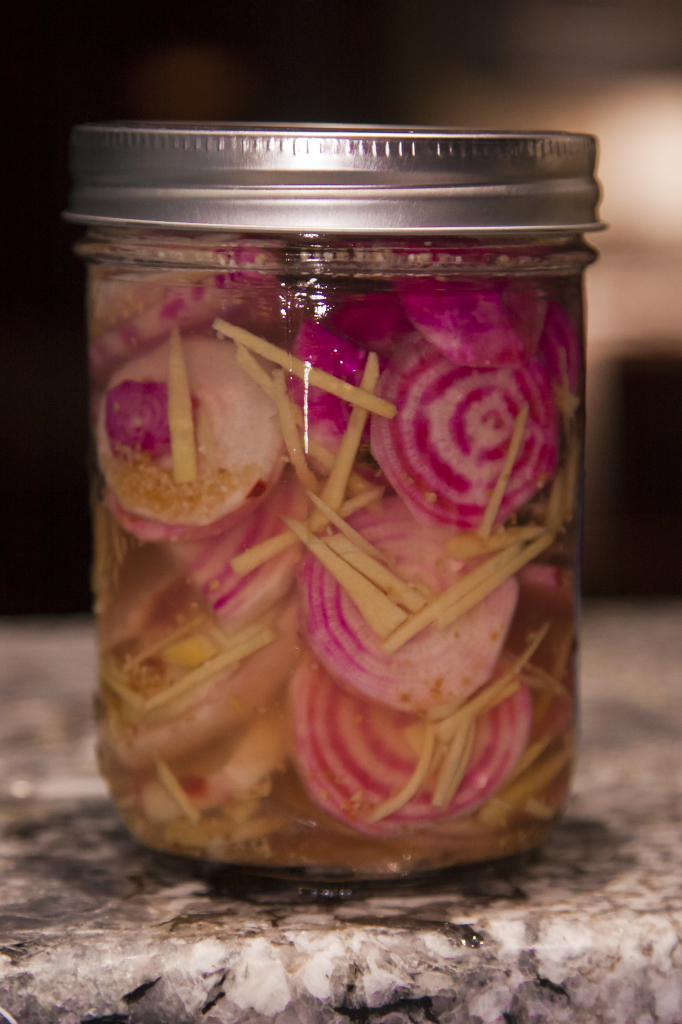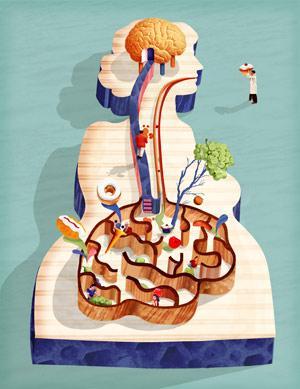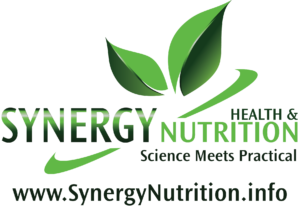Food is Therapeutic. I love sharing good solid nutrition, rather than profit-based nutrition. Thought provoking… real… information, recipes, occasional book finds, and other things that you—the person seeking to rebalance health starting by rebalancing eating—finds really useful.
Which brings me to today’s topic, beets! As a member of several professional groups focused on functional medicine and integrated nutrition, just about every day I get an email or six asking my thoughts about handling bloating, digestive upset…. more… or brain fog, tiredness, headaches, anxiety… more…
A recent holistic health practitioner wrote: “Hello! I need some help figuring out my client’s brain fog and fatigue. She sent me this info on how healthy she’s been eating:
‘Ok. Sooo today I had: banana, hard boiled egg. Pb & jelly on gluten free Schar bread, coffee – breakfast. Salad, roasted veggies and two pickles at a baby shower for lunch at 2:15pm. At 4:45pm stomach pains. Still having them. And won’t go away. I had an anxiety attack and suddenly I’m so drowsy. Don’t know how to explain. Except that I’ve had this before.’ Thoughts?”
In our medicalized world, we tend to compartment these symptoms: stomach pains or intestinal bloating > see a gastroenterologist; anxiety or depression > get counseling or take powerful brain changing drugs.
Or one of my clients: “Marie, I just had a really bad morning. My son was irresponsible and didn’t get ready for school, I was late for work, missed an important meeting. By lunchtime… my anxiety… I don’t know what happened, honestly. It was like something else was in control. I walked straight past the salad bar right over to the pastries—and after just one bite of baked bread I was literally unstoppable.”
You can’t help yourself – at times of stress the brain encourages us to seek out comfort foods. That much is well known. What you probably don’t know, though, is that the real culprit may not be the brain in your skull but your other brain.
How is there any connection between the gut and the brain?
This is an excellent question for the wise health sleuth. Their relationship isn’t talked about much in today’s healthcare models.
You actually have two nervous systems:
- Central nervous system, composed of your brain and spinal cord
- Enteric nervous system, which is the intrinsic nervous system of your gastrointestinal tract
- Yur gut-brain systems are connected by one large nerve: the vagus nerve
Well, maybe not so recently. Actually it was physician Byron Robinson who, in 1907 published The Abdominal and Pelvic Brain and pioneered the gut brain connection. The problem is it doesn’t fit a compartmentalized, symptom > pill, medical model.
These systems actually started as one. Very early when the embryo develops there are precursor cells (called the neural crest if you want to know) that separate with one region ultimately becoming the brain and spinal cord and another become an even larger neural network: the nervous system in your gut.
You have neurons in your brain; you also have neurons in your gut. The neurons in your brain produce serotonin; the neurons in your gut produce serotonin—in fact, your intestines, not your brain has the greatest concentration of serotonin, which is involved in mood control, depression and aggression.
And this is probably why antidepressants, which alter serotonin levels in your brain and your gut, are often ineffective in treating depression while creating a host of digestive and weight issues. Meanwhile, proper dietary changes often help behavioral and mood issues.
The gut-brain feel good factor
Believe it or not, your gut produces a wide range of hormones, around 40 neurotransmitters also found in the brain and not to mention serotonin, gut neurons makes as much dopamine as those in your head. They have sensors for sugar, protein, acidity and other chemical factors that monitor the progress of digestions, determine how the gut mixes and propels its contents—or doesn’t.
Your brain sends signals to your gut, your gut sends signals to your brain—it does this all along the information superhighway of the vagus nerve. We accept the “Maalox moment” of anxiety-caused heartburn, or fear and “butterflies in my stomach.” What about the other direction? Obviously the gut brain doesn’t have emotions, but can it influence those that arise in your head?
Although the general consensus is that neurotransmitters produced in the gut cannot get into the brain, nerve signals sent from the gut to the brain do appear to affect mood. In fact, there is a good amount of evidence in two seemingly different imbalances:
- fat deficiencies raise anxiety and hyperactivity, eating healthy fats improves mood and can elevate depression or sadness
- both Candida and Clostridium (toxic micro-organisms) can elevate anxiety and abnormal brain function, this can be corrected with probiotics
The depressing, anxiety-causing gut-brain problem
If your food is not broken down into microscopic particles by the process called digestion, your body cannot absorb its nutrients. Anything you eat that is undigested becomes a toxin to your body, including healthy foods like fruits, vegetables, proteins and fats. Inside your body, undigested proteins putrefy (rot), undigested fats go rancid and undigested carbohydrates ferment.
Anything you eat that is undigested becomes a toxin to your body, including healthy foods like fruits, vegetables, proteins and fats.
Without nutrients the body’s organs, muscles, etc., literally starve while chunks of undigested foods clog your intestines.
Without nutrients, your body fatigues, and as part of an ancient system the hunger in your gut translates to the emotion called anxiety—presumably to create the necessity to drop everything you are doing and go eat. Except here’s the catch: today, unlike when these systems evolved, today we run to local snack shack or grab a pick-me-up while filling the car with gas or at Starbucks. And, today, these are not the greens and wild meats our ancestors snacked on.
Today, we grab carbohydrates like sugar and bread. Sure, they are easily digested and for a minute you feel satisfied. The problem is that they offer few nutrients, which causes the body to request more food. The other problem is the request for food is usually met with more cookies, crackers, cakes… And the other, other problem is all the starchy fillers even in so-called health foods. All this leads to the problem of inviting a party of pathogens to live inside your gut: Candida, Clostridium, parasites and a whole host of unwanted critters take over. And they love the new snacking regime.
The new tenants in your gut don’t care for protein and they don’t care for fats either. They love and live for sugars and things that become them. They ferment breads, rice, sugars, even the starches in legumes into alcohols—which, unlike gut neurotransmitters, crosses the blood brain barrier and gives you brain fog. Should you try to actually eat something green, they complain. And forget about fats—except you cannot make neurotransmitters or absorb vitamin D without them.
What in the world do beet greens and beet juice have to do with emotional issues like depression or apprehension?
 When it all comes down to fats, fats come down to bile! That’s right, that slimy rock star that travels from our liver to the gallbladder, ultimately turning into bile salts makes all the difference in whether your body gets any of the healthy fats you eat.
When it all comes down to fats, fats come down to bile! That’s right, that slimy rock star that travels from our liver to the gallbladder, ultimately turning into bile salts makes all the difference in whether your body gets any of the healthy fats you eat.
Ingesting beet juice and beet greens thins out the bile, creating a higher quality bile.
This aids in better digestion and proper pH throughout the intestinal tract. And that, in turn, supports the gazillion of healthy bacteria that you’d like to have living there.
Good quality bile is crucial for proper essential fatty acid (EFA) assimilation. Without proper bile production, it doesn’t matter how much fish oil you take or how many inventive ways you find to squeeze flax seeds into your food, fats still won’t be absorbed properly.
And… improper EFA absorption sends blood sugar levels all over the place, which can create feelings of depression and apprehension.
Sure, emotional issues can certainly be grounded in unhappiness at home or unpurposeful work. But where do you get the energy to address these issues if there is upset body chemistry created by an unhealthy lifestyle and diet. And sometimes, correcting gut chemistry is all it takes to free the other brain for the needed epiphany.
[contact-form-7 id=”1851″ title=”Question form blog page”]
References
Shaw W. Increased urinary excretion of a 3-(3-hydroxyphenyl)-3-hydroxypropionic acid (HPHPA), an abnormal phenylalanine metabolite of Clostridia spp. in the gastrointestinal tract, in urine samples from patients with autism and schizophrenia. Nutr Neurosci. 2010 Jun;13(3):135-43.
Oudenhove LV, et al., Fatty acid-induced gut-brain signaling attenuates neural and behavioral effects of sad emotion in humans. J Clin Invest. 2011;121(8):3094–3099. doi:10.1172/JCI46380.
Touchefeu Y, et al. Systematic review: the role of the gut microbiota in chemotherapy- or radiation-induced gastrointestinal mucositis – current evidence and potential clinical applications. Aliment Pharmacol Ther. 2014 Sep;40(5):409-21. doi: 10.1111/apt.12878. Epub 2014 Jul 11.
Urben LM, et al. Bugs or drugs: are probiotics safe for use in the critically ill? Curr Gastroenterol Rep. 2014 Jul;16(7):388. doi: 10.1007/s11894-014-0388-y.
Vitetta L, Briskey D, Alford H, Hall S, Coulson S. Probiotics, prebiotics and the gastrointestinal tract in health and disease. Inflammopharmacology. 2014 Jun;22(3):135-54. doi: 10.1007/s10787-014-0201-4. Epub 2014 Mar 16.
Wroblewska M1, Juskiewicz J, Wiczkowski W. Physiological properties of beetroot crisps applied in standard and dyslipidaemic diets of rats. Lipids Health Dis. 2011 Oct 14;10:178. doi: 10.1186/1476-511X-10-178.
Jain NK & Singhai AK. Protective role of Beta vulgaris L. leaves extract and fractions on ethanol-mediated hepatic toxicity. Acta Pol Pharm. 2012 Sep-Oct;69(5):945-50.
Georgiev VG, et al. Antioxidant activity and phenolic content of betalain extracts from intact plants and hairy root cultures of the red beetroot Beta vulgaris cv. Detroit dark red. Plant Foods Hum Nutr. 2010 Jun;65(2):105-11. doi: 10.1007/s11130-010-0156-6.







